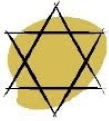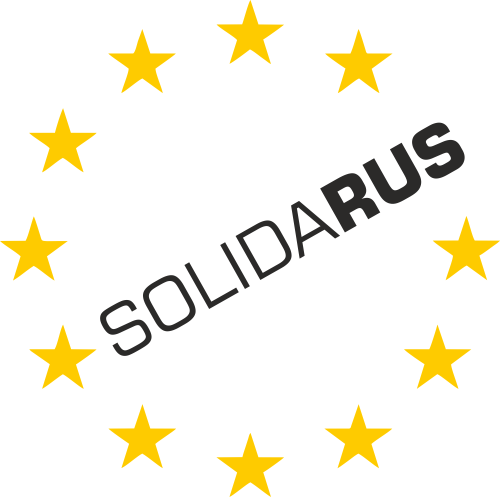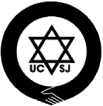The Kremlin’s Political Prisoners: The Case of Artpodgotovka
Memorial Human Rights Center recognized Oleg Dmitriev, Oleg Ivanov, and Sergei Ozerov, supporters of a group called Artpodgotovka, convicted of preparing a terrorist act in the center of Moscow on November 5, 2017, as political prisoners.
Oleg Dmitriev, Oleg Ivanov, and Sergei Ozerov, who arrived in Moscow from different regions to take part in a so-called “Revolution 5.11.17” – a protest rally across the country announced by an opposition politician Vyacheslav Maltsev. Dmitriev, Ivanov, and Ozerov have been convicted on charges of committing a crime under Article 30, Section 1A and Article 205, Section 2 of the Russian Criminal Code (“Preparations to commit an act of terrorism by a group by prior agreement”) and sentenced to eight, seven, and eight years in a strict-regime prison respectively, with one year restriction of freedom after release. All three argue that they are completely innocent and became victims of a provocation of special services. They have been held in custody since November 2, 2017.
According to investigators, the terrorist attack was supposed to happen “on November 5, 2017 in the city of Moscow during an unauthorized rally <…> by setting government buildings and critical infrastructure of the Russian Federation on fire, as well as attacking law enforcement officers on duty.” 13 bottles of gasoline and 2 bottles of “Solvent 646” were to be used to commit that crime.
After analyzing materials of the criminal case, Memorial Human Rights Center came to the conclusion that this case was probably fabricated and prosecution was a complete failure. Neither the investigation nor the court were able to specify exactly which facilities the defendants were allegedly planning to set on fire, while a description of actions that they supposedly had committed did not match the definition of “terrorism” from the Criminal Code of the Russian Federation.
There is a reason to believe with very high probability that the criminal case was completely fabricated, and defendants became victims of provocation by law enforcement agencies. Two letters written by Oleg Dmitriev (Ivanov and Ozerov co-authored the second letter) were published on the OVD-Info website where he outlined their version of the events. In those letters, defendants stated that they did not prepare and store Molotov cocktails, did not intend to use them for any kind of attacks, and have been victims of a provocation. This is confirmed, in particular, by the fact that there were no fingerprints on 12 of the 15 bottles.
According to defendants, an individual named Vadim Mayorov, who lived with them in a rented apartment and allegedly escaped from the security forces during the detention, as well as Maltsev’s colleague Nadezhda Petrova (also known as Belova), were special service informants from the very beginning, who secretly brought those bottles in the apartment’s balcony. All three defendants adhered to this version of an event during their trial.
At the trial, Memorial Human Rights Center staff member Daria Kostromina witnessed a crude fabrication of the case during an interrogation of a secret witness “Maxim Maximov”, who, under questioning, repeated answers suggested to him by a prompter. The testimony of this very “witness” was practically the only evidence presented to the court that the defendants intended to set fire to facilities. But even these testimonies did not contain an exact list of facilities that defendants were planned to set on fire, which is surprising, given that the accused allegedly seriously prepared a terrorist act.
Since the time the defendants were detained, their rights were crudely violated. In particular, Dmitriev claims that after his arrest he was tortured with an electric shocker. All three have been unlawfully restricted in their right to correspondence. Letters and money transfers from relatives, friends and supporters have not been delivered. These are illegal means of influencing the defendants.
Considering all the above facts, Memorial Human Rights Center recognizes Oleg Dmitriev, Oleg Ivanov, and Sergey Ozerov as political prisoners and demands their immediate release. We also demand to investigate human rights violations on November 5, 2017 and during the preceding period, including bringing law enforcement officers responsible for this to justice.
Memorial Human Rights Center continues to monitor the persecution of those accused of preparing the “Revolution of 5.11.17,” which began in the fall of 2017 and manifested in the initiation of dozens of criminal cases, including on charges of terrorism and preparing for riots. After studying materials of criminal cases available to us, we came to a conclusion that a significant number of the accused are innocent or have no relationship whatsoever to Maltsev or to the Artpodgotovka group that is banned in Russia.
The five people who fell victims to this campaign were previously recognized by Memorial Human Rights Center as political prisoners due to their innocence and fabrication of their criminal cases. These are three residents of Rostov-on-Don, Yan Sidorov, Vladislav Mordasov and Vyacheslav Shashmin, prosecuted for trying to organize a riot by holding a peaceful picket, a resident of Krasnoyarsk Roman Maryan, who allegedly planned to take part in a riot, and Vyacheslav Shatrovsky convicted for using violence against a police officer during his arrest on Moscow’s Pushkin Square. Such different cases are united by the obvious political commitment of the investigation, inadequate accusations, violations of the rights of the defendants and convicted, as well as an intention to present the events of November 5, 2017 not as a peaceful rally, but as an attempt to carry out an armed rebellion.













